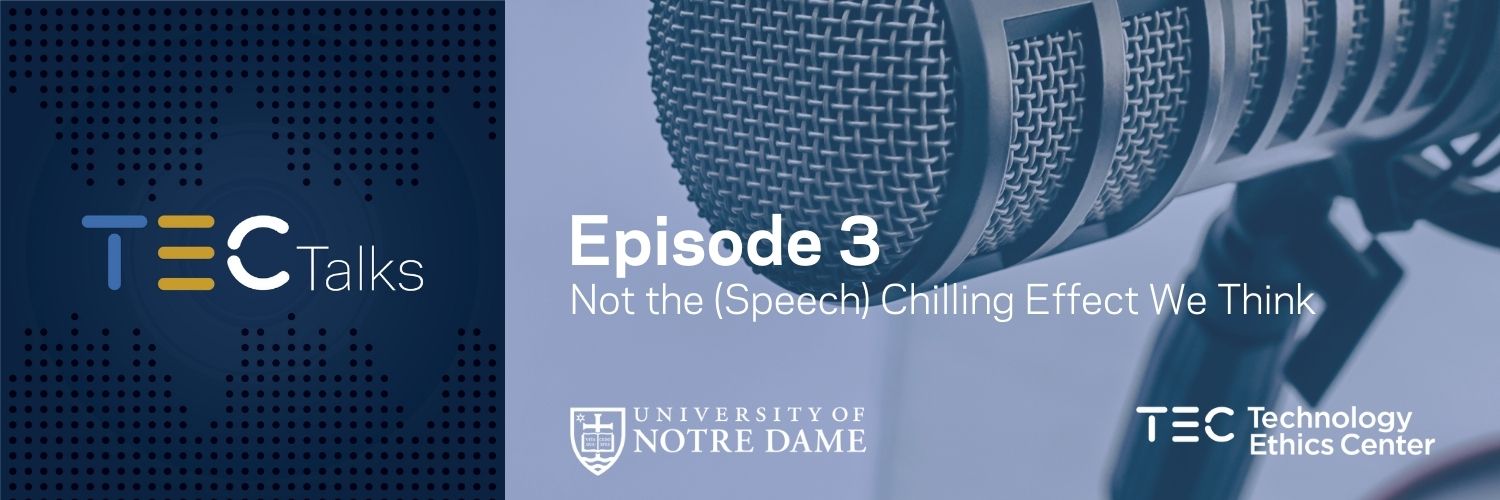Not the (Speech) Chilling Effect We Think

Host Kirsten Martin is joined by Suneal Bedi, an assistant professor of business law and ethics at Indiana University’s Kelley School of Business. Suneal’s areas of expertise include intellectual property, marketing law/ethics, brand strategy, and the First Amendment. Holding a joint Ph.D. in marketing and Ph.D. in business ethics from The Wharton School of the University of Pennsylvania as well as a J.D. from Harvard Law School, he employs multiple methods in his research to answer business-relevant questions that sit at the intersection of law, marketing, and public policy. Suneal came on the show to talk about a paper he recently published in the Harvard Journal of Law & Technology titled “The Myth of the Chilling Effect.” He and Kirsten started by talking about how the First Amendment and Section 230 of the Communications Decency Act—the provision that protects tech companies from being liable for user content posted on their platforms—are routinely misapplied in debates about content moderation on social media and elsewhere. Suneal then explained the study he conducted to test whether putting restrictions on what people can post online does in fact have what’s known as a “chilling effect,” or the consequence of deterring speech in unintended ways. He did find evidence of this effect, but not in terms of the substance of what people were saying; rather, it tended to make their tone slightly more positive. He and Kirsten also discussed how a lack of content moderation can have its own type of chilling effect by excluding marginalized groups who may not feel comfortable on the platform.
Additional Resources
Presented by Notre Dame Technology Ethics Center
Episode Links
- Article Discussed in the Episode: “The Myth of the Chilling Effect”
- Suneal’s Bio
- Episode Transcript
At the end of each episode, Kirsten asks for a recommendation about another scholar (or several) in tech ethics whose work our guest is particularly excited about. In addition to saying he’s interested in seeing what happens with Twitter in light of the Elon Musk news—a topic Kirsten has been quoted on widely in recent weeks, including in this story from CNN—Suneal cited the work of George Washington University’s Vikram Bhargava, the guest for the first episode of TEC Talks.
